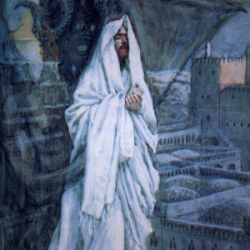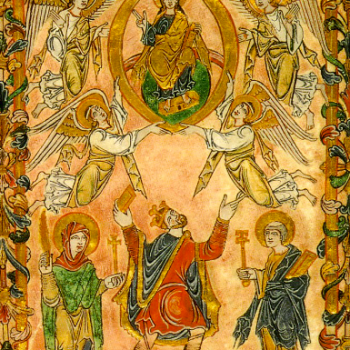In the book, however, young Michael is witness to much more than just his father’s violent and vengeful failings, seeing also his repeated repentance and his endless, driving desire to be forgiven. While in the midst of their journeys, he often wishes to grow up to be like his father, so struck is he by the man’s devotion and singleness of purpose. Ultimately, however, he is drawn toward the one calling that was able to give his father the peace he so desperately sought. Years after the night his father passed away in that cold, silent church, we learn that young Michael has become a priest. And in a moment of appropriateness and emotional power that its cinematic counterpart -- willfully divorced from those very “old school concerns” that make such themes meaningful -- could never possibly match, Father Michael Sullivan, Jr., clothed in his priestly vestments, closes the diary recounting his horrifying childhood adventures and steps directly into the confessional.
Young Michael starts out on the road to Perdition as a child, but he leaves it as a man -- thoroughly rejecting his father’s violent methods and practices, but just as thoroughly embracing his father’s hopes and fears, his beliefs, principles, and the clear moral code that was more important to him than life itself. Could there be a more definitive, hopeful response to the question posed at the end of the film than that?





